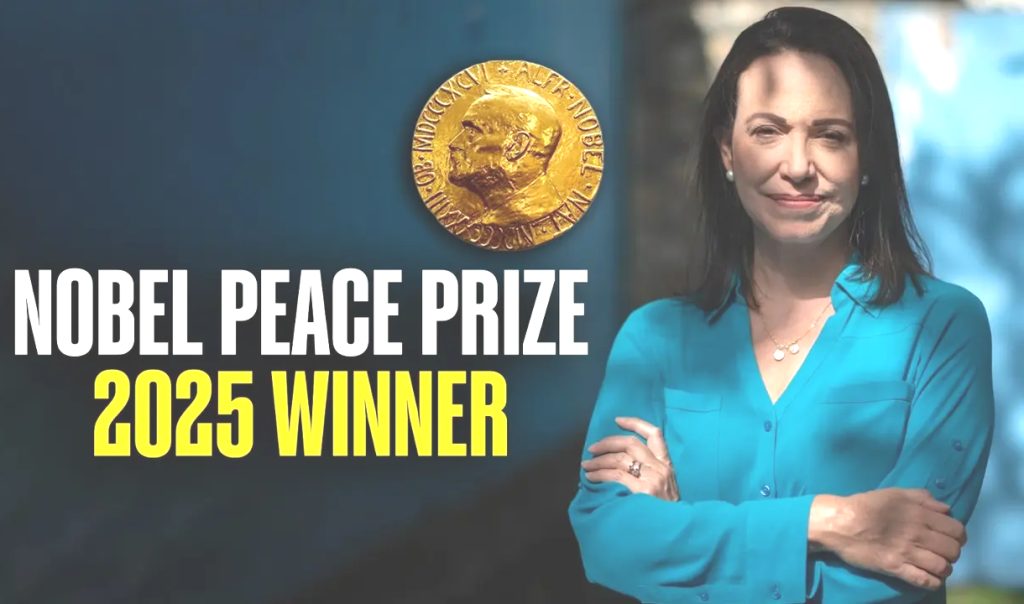The Nobel Prize remains one of the most prestigious and globally respected recognitions of human achievement. Since its inception in 1901, it has stood as a beacon of excellence, honouring men and women whose work has advanced science, literature, and peace. Founded according to the will of Alfred Nobel, a Swedish chemist, engineer and inventor best known for dynamite, the prize was meant to encourage contributions that “benefit humanity.” Nobel, who amassed great wealth from his inventions, chose to dedicate his fortune to celebrating ideas rather than weapons. Ironically, his creation of dynamite, originally meant for construction, was later used in warfare. Perhaps this contradiction inspired his desire to reward those who work for the good of humankind.
Over the years, the Nobel Prizes have been awarded in six categories: Peace, Literature, Physics, Chemistry, Physiology or Medicine, and Economic Sciences, with the last being introduced in 1968 by the Swedish Central Bank. The laureates receive a gold medal, a diploma, and a monetary award that currently stands at around 11 million Swedish kronor, equivalent to over one million US dollars. The Peace Prize, uniquely, is presented in Oslo, Norway, while the others are awarded in Stockholm, Sweden. This arrangement was Nobel’s personal wish, though no one knows precisely why he chose Norway for the peace category.
Across more than a century, the Nobel legacy has produced remarkable stories of genius, sacrifice, and sometimes controversy. One of the most fascinating facts about Nobel laureates is that a few individuals have won more than once. Marie Curie stands unmatched as the only person to receive Nobel Prizes in two different sciences – Physics in 1903, shared with her husband Pierre Curie and Henri Becquerel, and Chemistry in 1911 for her discovery of radium and polonium. Her dedication to scientific inquiry under harsh conditions, even while battling illness, remains legendary. Similarly, Linus Pauling, an American chemist and peace activist, remains one of only two people to win two unshared Nobel Prizes—one for Chemistry in 1954 and another for Peace in 1962 for his campaign against nuclear weapons testing.
Another interesting case is John Bardeen, the only person to win the Nobel Prize in Physics twice – first in 1956 for inventing the transistor, and again in 1972 for his work on superconductivity. The Nobel story also includes Albert Einstein, perhaps the most famous scientist of all time, who surprisingly did not win the award for his theory of relativity but rather for explaining the photoelectric effect in 1921. The Nobel committee tends to favour discoveries that have direct practical or experimental proof, and relativity at that time was still seen as too theoretical.
The Nobel tradition has also celebrated the written word and the power of literature to shape thought and society. The Literature Prize has honoured poets, novelists, playwrights, and even musicians. Bob Dylan’s 2016 award “for creating new poetic expressions within the great American song tradition” shocked traditionalists but expanded the definition of literature. Winston Churchill, the British wartime leader, received the Nobel Prize in Literature in 1953 – not for politics but for his masterful historical writings and oratory. Yet not all writers have embraced the honour. French philosopher Jean-Paul Sartre famously rejected the award in 1964, insisting that a writer should not allow himself to become an institution. Others, like Rudyard Kipling, the youngest ever laureate in literature at 41, accepted it as an acknowledgement of the literary imagination that shaped generations.
READ ALSO:
Parental and academic pressure linked to rising student unrest, says education expert
The Nobel Peace Prize has often been the most politically charged. It has been awarded to global icons such as Martin Luther King Jr., Mother Teresa, Nelson Mandela, and Malala Yousafzai, the youngest ever laureate at only seventeen. The first woman to win the Peace Prize, Bertha von Suttner, did so in 1905 and is believed to have influenced Alfred Nobel himself through her anti-war writings. The Peace Prize has at times been controversial. Barack Obama received it in 2009, only months after becoming U.S. President, for his “extraordinary efforts to strengthen international diplomacy,” a decision that divided opinion. Several laureates have accepted the award while imprisoned or under house arrest, such as Carl von Ossietzky in 1935 and Aung San Suu Kyi in 1991. The International Committee of the Red Cross has won it three times, reflecting its enduring humanitarian role.
While the Nobel Prizes celebrate greatness, they also reveal global inequalities, especially in gender representation. Women make up less than seven percent of all Nobel laureates, though recent years have seen a positive shift. Dorothy Hodgkin, who won the Chemistry Prize in 1964 for determining the structure of vital biochemical substances, was the only British woman to do so for decades. In 2020, Andrea Ghez became one of the few women to win a Physics prize for her study of black holes. The stories of women like Mother Teresa, Marie Curie and Malala Yousafzai remind the world that compassion, perseverance and intellect transcend gender.
Some aspects of the Nobel story are less noble and more curious. Few people know that notorious figures like Adolf Hitler, Joseph Stalin, and Benito Mussolini were at one time nominated for the Nobel Peace Prize, though none received it. In 2018, the Literature Prize was postponed after a scandal involving sexual misconduct within the Swedish Academy, showing that even venerable institutions face human flaws. There have been cases of laureates selling their medals—sometimes due to financial hardship, other times to fund humanitarian causes. During the Second World War, Nobel medals belonging to German scientists were dissolved in acid by the chemist George de Hevesy to prevent Nazi confiscation. After the war, the gold was safely recovered and the medals recast, a story of courage and scientific ingenuity that would have pleased Alfred Nobel himself.
The Nobel Prize has also served as a mirror to the evolution of humanity’s conscience. Early awards focused on physics, chemistry, and medicine – the tangible sciences of progress. In later years, the organisation began honouring peacebuilders and writers, reflecting society’s growing appreciation for moral and cultural contributions. In our time, as global challenges like climate change, inequality and war persist, the Nobel Prize continues to highlight the role of human creativity and conscience in shaping a better future.
Beyond the fame and fortune, what truly defines a Nobel laureate is not the medal or the ceremony but the enduring impact of their work. From the humble laboratory of Marie Curie to the prison cell of Nelson Mandela, from the classrooms of Malala Yousafzai to the writings of Gabriel García Márquez, the Nobel legacy is a testament to the idea that greatness often begins in struggle, conviction and a desire to make the world a little better. The Nobel Prize, in essence, reminds humanity that ideas – when pursued with purpose and integrity – remain the most powerful tools for progress.
By Ashford Kimani
Ashford teaches English and Literature in Gatundu North Sub-county and serves as Dean of Studies.
You can also follow our social media pages on Twitter: Education News KE and Facebook: Education News Newspaper for timely updates.
>>> Click here to stay up-to-date with trending regional stories
>>> Click here to read more informed opinions on the country’s education landscape






